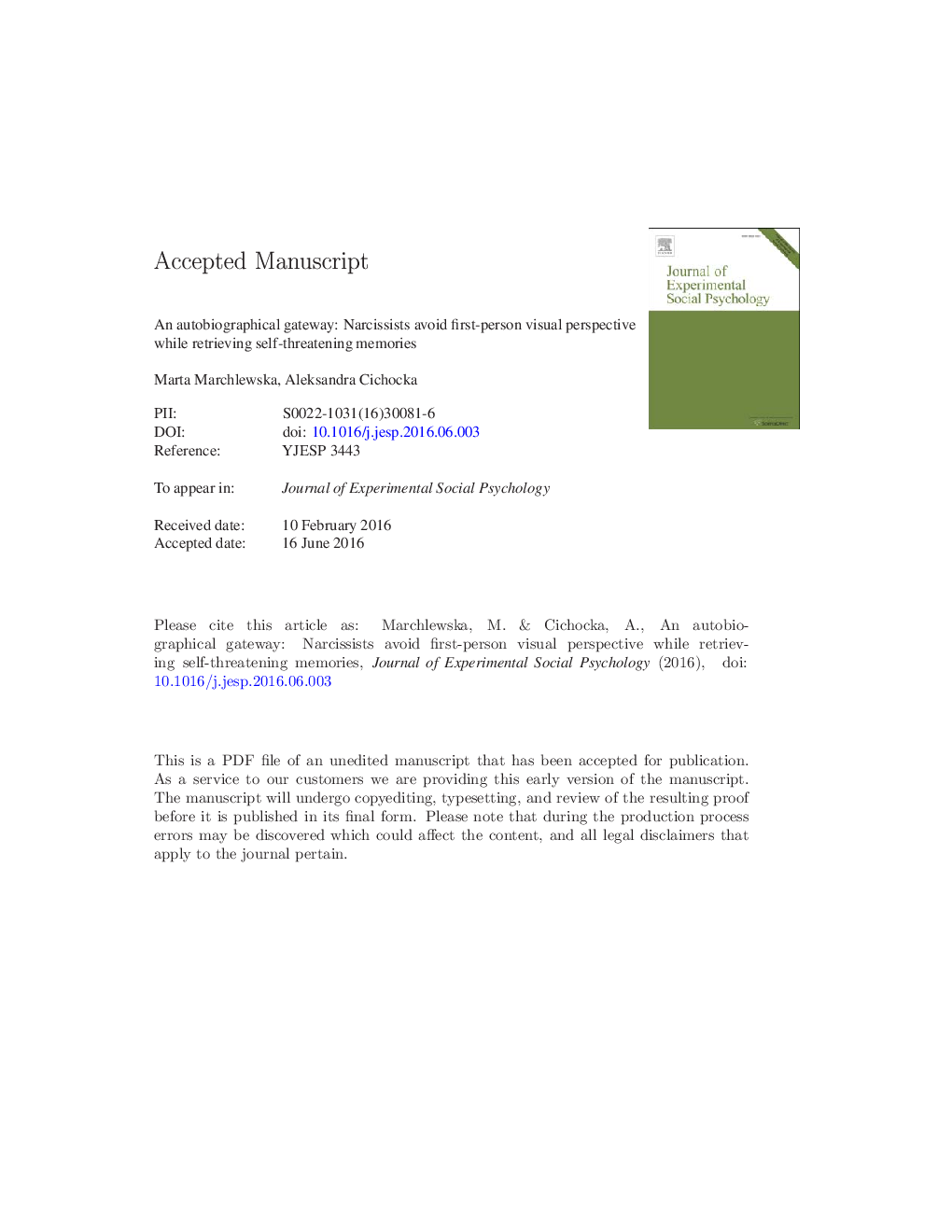| Article ID | Journal | Published Year | Pages | File Type |
|---|---|---|---|---|
| 7324403 | Journal of Experimental Social Psychology | 2017 | 23 Pages |
Abstract
This research examines the role of narcissistic versus genuine self-evaluation in the retrieval of self-threatening memories. Autobiographical memories can be retrieved either from a first-person or a third-person visual perspective. Because narcissism is linked to sensitivity to psychological threats, it should predict retrieval of self-threatening memories using the third-person perspective. Genuine self-esteem, on the other hand, is resilient to threats. Therefore, it should be associated with retrieving self-relevant, even if threatening, memories from the first-person perspective. In two experiments we measured narcissism and self-esteem. Experiment 1 manipulated valence of self-relevant memories by asking participants to recall self-threatening (shameful) or self-boosting (proud) situations. Experiment 2 manipulated self-relevance of negative memories by asking participants to recall self-threatening (shameful) or negative, yet not self-threatening (sad) situations. Visual perspective of memory retrieval served as the dependent variable. In Experiment 1, narcissism predicted avoiding the first-person perspective and employing the third-person perspective in self-threatening memories. Genuine self-esteem predicted employing the first-person perspective regardless of the memories being self-threatening or self-boosting. In Experiment 2, narcissism predicted the third-person perspective, while genuine self-esteem predicted the first-person perspective when self-threatening memories were recalled. Neither narcissism, nor genuine self-esteem were associated with visual perspective when participants recalled negative memories irrelevant to the self. Results shed light on the role of self-evaluation in processing autobiographical memories.
Related Topics
Life Sciences
Neuroscience
Behavioral Neuroscience
Authors
Marta Marchlewska, Aleksandra Cichocka,
